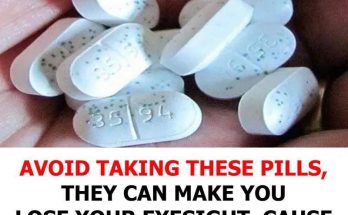I never expected a silent threat could hide in a teenager’s daily drinks. Yet when a 13‑year‑old girl was rushed to the hospital after developing severe kidney failure, the underlying cause turned out to be right under our noses: years of sugar‑sweetened drinks replacing water—and showing how kidney health risks can emerge quietly, especially in young people.
Hidden Toll: Sweetened Drinks and Emerging Kidney Damage
Imagine a seemingly healthy teenage girl, full of life and laughter, only to find that swelling ankles, fatigue, decreased urine output, and high blood pressure were signs of something far more serious. Her parents had no reason to worry before—she had no known health issues. But the doctors asked three simple questions:
- Do you drink enough water every day?
- Do you take any medications or supplements often?
- What do you usually drink instead of water?
The answer to the third question revealed the heart of the problem: she had been downing multiple bottles of sweetened iced tea and soda daily for over a year, completely replacing water.
That daily habit—sip after sip—introduced excessive sugar, caffeine, and phosphoric acid into her system. Over time, those substances put enormous strain on her kidneys, silently reducing their function until a crisis emerged.
Sugary Drinks: More Than Just Empty Calories
It’s easy to think of soda and sweetened iced tea as harmless indulgences. But research tells a different story. Regular consumption of sugar‑sweetened beverages (SSBs) has been linked to higher risk of chronic kidney disease and is part of a rising trend in young people’s kidney troubles.
It’s not just kidney health at stake:
- SSB intake is associated with increased risk of obesity, type 2 diabetes, cardiovascular disease, and other long-term health issues
- Even moderate intake can affect metabolic health, especially in teens and young adults.
Hydration Matters—Water Is Still the Best Choice
When experts talk about healthy hydration habits, they mean prioritizing water above all else. According to public health recommendations, kids and teens should stick to plain water, plain milk, and occasional 100% fruit juice. Drinks with added sugar, caffeine, or artificial sweeteners should be limited or avoided altogether.
Some practical guidelines for supporting kidney health in children include:
- Encouraging daily water intake and limiting sugary snacks and beverages.
- Promoting regular activity, balanced weight, and routine medical checkups.
- Being mindful of over-the-counter medications that may unintentionally harm kidney function
A Painful Lesson—and Hopeful Outlook
For that young girl, the consequences were serious. She’s now undergoing dialysis and may require a kidney transplant in the future. Her situation stands as a powerful and painful reminder: what we or our children drink daily matters just as much as what we eat.
But it also offers hope—because kidney damage from lifestyle choices can often be prevented or slowed. By teaching teens about preventing chronic kidney disease, encouraging kidney-friendly nutrition, and monitoring beverage habits, parents and caregivers can reduce future health risks.
What Every Family Should Know About Teen Hydration and Kidney Health
1. Be savvy about sugary drink marketing. Teens are often targeted with flashy ads for SSBs—awareness and alternatives help empower healthier choices.
2. Make water appealing. Infuse it with fruit, serve it chilled, or add fun reusable bottles.
3. Model healthy behavior. Parents who drink water, not sweetened beverages, set a powerful example.
4. Know the risks. High sugar and caffeine intake can fatigue internal organs quietly over time.
5. Act early. Swelling, fatigue, or changes in urination shouldn’t be dismissed—get medical advice before small signs escalate.



